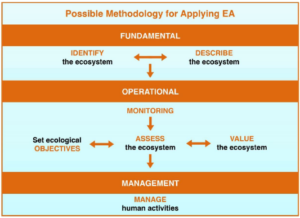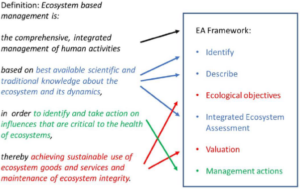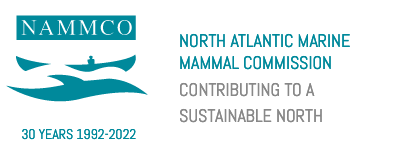Implementing the Ecosystem Approach to Management
From 25-27 June, the second International Science and Policy Conference on the Implementation of an Ecosystem Approach to Management in the Arctic was held in Bergen. The conference had a particular focus on the integration of information at different scales in the ecosystem approach (EA). The co-convenors of the meeting were the IMR, ICES, PICES, NOAA, PAME, CAFF, AMAP and the Arctic Council.
The conference operated with a definition of EA agreed by Arctic Council ministers in 2013:
Comprehensive, integrated management of human activities based on best available scientific and traditional knowledge about the ecosystem and its dynamics, in order to identify and take action on influences that are critical to the health of ecosystems, thereby achieving sustainable use of ecosystem goods and services and maintenance of ecosystem integrity
In the guidelines published by an Arctic Council joint expert group that were provided as background material for the conference, the following framework for implementing EA was presented:


The conference contained presentations addressing all of these various stages of EA implementation including ecosystem identification, description, monitoring, assessment, valuation and management. There were dedicated sessions on the implementation of EA on national levels, as well as within the large marine ecosystems (LMEs) of the Arctic. There were also extensive sessions on the development of marine protected areas (MPAs) in different parts of the Arctic and the integration of western science and indigenous, traditional and local knowledge (TLK) in EA. Monitoring and handling growing anthropogenic impacts from climate change, shipping, noise, and oil and gas exploration were topics discussed across several sessions. The conference also emphasised the importance of both science and policy being able to respond and adapt to the changing and dynamic nature of the Arctic environment in today’s world.
NAMMCO’s Scientific Secretary Fern Wickson gave a presentation on the politics of scale and how certain scale-based choices can affect the ability to successfully integrate different knowledge systems. Among all of the conference participants, there was significant commitment to advancing EA and the need to incorporate both science and TLK in this effort. However, it was also recognised that the implementation of this in practice remained challenging. A breakout session was held to specifically discuss how to advance the integration of different knowledge systems in EA. Following this session it was agreed that it was important to engage indigenous/local knowledge early and often in the process and not leave this until the final management phase. It was also acknowledged that there was a need to invest in relationship building and capacity building, to work to build trust & respect over time, and to legitimately share decision-making responsibilities. This includes not only management decisions but also decisions about the research questions, priorities and processes for science. It was noted that best practice recommendations for Arctic environmental impact assessment and meaningful engagement with local communities were available from the sustainable development working group of the Arctic Council.



